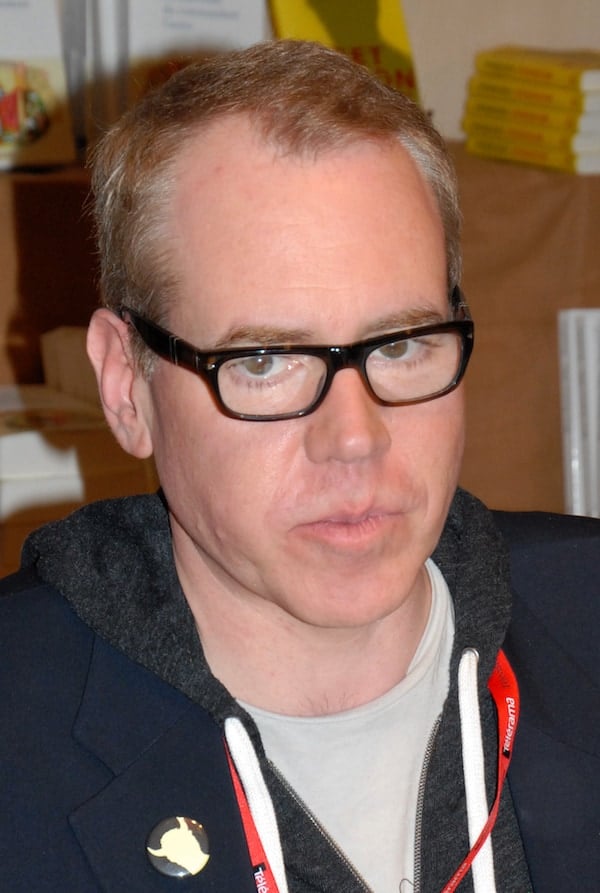The last time we checked in on author Bret Easton Ellis he was trolling the academy about Black Panther, “being shoved down his throat.”

Photo by Camille Gévaudan.
CC BY-SA 3.0
Back then Ellis said: “Even though there is no one out here in La La Land I've met who thinks Black Panther is that good as a movie. Yet, as a piece of representation, they are supporting it.”
Ellis went on to say that he felt that the assessment of Coogler's film as a “grand piece of cinematic art” was being “shoved down our throats” by press and studios alike. “Representation is so important to them,” he said on the podcast, which is only available to subscribers for a fee. “And with a huge fatuous inclusivity and diversity push. What the most flattering pose might be in the moment—as if inclusivity and diversity have anything to do with awarding a movie's merits. Yes, this is the culture the Oscars are pushing, and it is rather nauseating.”
Yet now, it appears the curmudgeonly writer is happy with the LGBTQ representation in the current crop of Oscar nods, because they aren't solely focused on their sexuality he writes in a guest column for The Hollywood Reporter.
Referring in particular to Bohemian Rhapsody as being “post-gay” Ellis says,”[he] sees Freddie as so much more than his sexuality. He's a titan, a rock god, a towering singer and musician, and he's not solely defined by his gayness. It isn't the central problem the movie needs to resolve as it has been in most queer cinema, even as recently as two 2018 films on LGBT subjects, Love, Simon and the gay-conversion drama Boy Erased.”
Ellis goes on to talk about how Rhapsody, Green Book, and Can You Ever Forgive Me are great representations of LGBTQ characters but also entertaining which is what the author is really looking for. And how, “we've come a long way from the agonies of Tom Hanks dying from AIDS in 1993's Philadelphia; or from the tortures of forbidden same-sex romance in 2005's Brokeback Mountain (a movie about shame that ends in death); and from Sean Penn as gay martyr Harvey Milk, assassinated because of his sexuality in 2008's Milk. That's because none of the movies where these seven nominated performances reside are about gayness at all. Homosexuality and disease and the closet isn't the point, suffering and victimhood is not at their center, and ideology is pushed back in favor of simple storytelling. These are films in which a character's sexuality doesn't become the whole pathetic reason for the movie to exist. This is, remarkably, in American movies, a new thing.”
Read the rest of his essay here.



